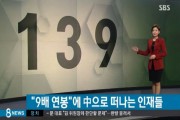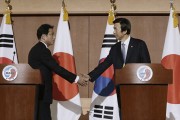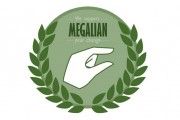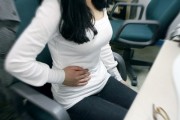In response to the heated discussion generated last week by two of our articles about gender relations in South Korea, koreaBANG has partnered with the editor of Korean Gender Café (KGC), Chelle B. Mille, today to offer a different viewpoint about the World Economic Forum Gender Gap ranking for South Korea.
Why Korea is Ranked 108th in Gender Equality
by Chelle B. Mille
Korea University researcher Dr. Kang Seok-Ha1 spent “just a few days to find these examples of biased use of data” to feed a critique of Korea’s ranking in the World Economic Forum (WEF) Gender Gap Report to an eager audience at popular and politically conservative pundit Byun Heejae’s Media Watch site. Dr. Kang should have more carefully analyzed the data in order to support the broad conclusions he draws about gender equality in Korea. We at Korea Gender Cafe will respond to Dr. Kang’s evidence evaluation methods and talk about sexual violence in Korea. If you’d like to read additional takedown of his opinions please visit and join our discussions at the Korean Gender Café blog, Twitter and Tumblr.
The only data point that Dr. Kang actually explains in detail is his claim that Korea’s education ranking shouldn’t be lower than Lesotho and Botswana. He repeatedly critiques the WEF for omitting absolute values and not considering the absolute quality of life for Korean women as compared to other nations. He seems to have missed the title of the WEF report which clearly states that it is measuring the gender gap between men and women. This is akin to writing that Korea cannot have a greater degree of income inequality than Afghanistan because Korea has a much larger GDP. The difference between relative gaps and absolute levels are clearly laid out for the reader on WEF page three.2 For those who read further, on page four we learn that nations are ranked according to whether or not there is a gap in women’s access to education, not in the absolute numbers of women who have attended school. Thus, Dr. Kang’s musing that Korea ranked 99th because the report “includes everyone in Korea, meaning the older generation who grew up before primary education became mandatory in 1950” is false according to WEF methodology.
Dr. Kang’s methods obscure the data in two important ways. First, he only discusses primary education. Yet, the WEF study includes secondary and tertiary (university) education, where Lesotho and Botswana actually a higher ratio of women enrolled than men. In stark contrast, Korea has a disparity of 0.72:1 female-to-male enrollment in tertiary education. Second, although Dr. Kang’s report was published on August 8, 2013 he compares the 2012 WEF Global Gender Gap index to the 2011 UNDP gender equality data, even though 2012 data was available. Why? Notably, Korea ranked 11th on the UNDP list in 2011, but dropped to 27th in 2012. Perhaps he was unaware that 2012 data was available, or he highlighted the ranking that he liked better to represent gender equality in Korea.2
Both the WEF and UNDP indices are blind to health, social welfare and employment policies. On one hand, Korea’s high UNDP health and particularly reproductive health performance can be praised. But while Dr. Kang is quick to point out the history of education access in Korea, he neglects to mention reproductive policy. After decades-long state-driven and repressive reproductive policy, the state recently switched to family fertility promotion. Under this reproductive regime Korea marshals social resources to solve its ‘fertility crisis’ with abortion bans, restricted birth control, free infertility counseling and treatment, overuse of costly and complicated surgeries, inconsistent abortion exceptions for teens and rape survivors, and heavy stigmatization of unwed motherhood.4 We will continue to respond to Dr. Kang’s arguments and provide counter-evidence in the coming days on our blog.
Dr. Kang points out human rights violations against women in other countries, but we can point to sexual violence and human rights violations in every country. That is not the purpose of these indices. We agree that it is problematic that gender inequality indexes do not adequately reflect violence against women or sexual violence. We disagree with Dr. Kang’s outward looking criticism and encourage discussion of sexual violence in Korea.
Preparing this rebuttal, we noted that many koreaBANG readers participated in an argument over whether or not a rape survivor was “telling the truth” when she told her story in the comments on last week’s article. First, we applaud Guest/Kate for sharing her story. Second, that debate brought up a number of problematic issues: rape survivor shaming and silencing, the idea that rape is “only a problem” if the survivor is foreign, and every commenter’s opinion about what a survivor should do. Rape is everyone’s problem, citizen or not, male or female. Survivors do not need to be shamed, silenced or told how they should respond – there are already too many cultural cues that encourage women to second-guess and blame themselves, we need not add to that! More importantly, hearing those who speak out provides us an opportunity to stop being bystanders and to create safer communities.
To that end, KGC authors have been at work for months building a team of 24 volunteers nationwide to establish a supportive community and useful tools called Hollaback! Korea.5 We join 22 other Hollaback nations in sharing incidents of street (sexual) harassment. Our bilingual Korean and English site and mobile app will launch in early December and provide an opportunity for survivors to share stories of street harassment and sexual violence. Our project will encourage public awareness and effective bystander intervention. Next year we will use the stories of street harassment to prepare a report and recommendations to address sexual violence. For more information please contact us through KGC.
1Dr. Kang Seok Ha (33) studied biology at the Kyung Hee and then completed his Ph.D. in medical science at Chungbuk National University. He currently researches the influenza virus at Korea University.
2http://www3.weforum.org/docs/GGGR12/MainChapter_GGGR12.pdf
3http://hdrstats.undp.org/en/indicators/68606.html
4http://www.koreabang.com/2013/stories/controversial-book-on-abortion-in-south-korea-triggers-debate.html
5http://www.ihollaback.org







